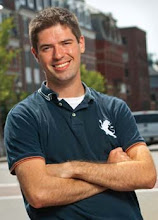Despite my vitriolic manifesto to the contrary, I've become a part of the Twitter phenomenon. I even have my tweets push into a sidebar to the current website.
One of my favorite tweet hashtags, or genre-markers for the uninitiated, is #firstworldproblems. I use it all the time, but perhaps I use it too carelessly. Perhaps it needs better explanation.
What used to be my quintessential example of firstworldproblems was the night, last semester, when Comcast service went down for a half hour period. The unBridge and I were texting each other back and forth, frantic, asking if the other had service, wondering what we could do. The unBridge found it most ironic that instructions how to bypass the outage could be found...on the internet.
That panic that arose from nothing more and nothing less than a lack of an Internet service - that's a first world problem. What human being actually needs constant access to broadband Interwebs?
But then #Jan25 happened. The Animus, earlier today, linked this post in a tweet of his own. In no way am I trying to draw a direct parallel from my experience to that of Egyptians, either to trivialize the latter or to self-aggrandize the former. Rather, I mean to examine it metaphorically, analogically.
The Animus says, "The thing with social media is it makes divulging your personal and tracking information fun."
But the other thing with social media is it prevents another Guatemala from occurring. Hopefully it prevents other acts of hate and suffering from occurring. All the world can be tracked? Sure. But simultaneously, all the world can be watching.
In the cacophony that are the Interwebs, the position that resounds is not the most vitriolic or imbued with the most rhetoric. The most powerful reverberations are the silences.
4 years ago

2 comments:
Social media makes us safer. Is that what you mean? If so I agree, though it's not perfect transparency.
But yes, the silences are deafening.
I don't like "safer." I think social media show the democratization of the metaphor of the "global village." While still firmly entrenched as first world problems, social media are not just the toys of the rich and famous. They cross boundaries of class, race, location... I would say they make us "safer" or "protect" us only in the way that near-instantaneous flood of information creates a system of check-and-balances against [and for] [any? first world?] intervention.
Post a Comment